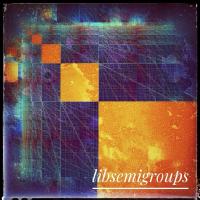Defined in to-froidure-pin.hpp
This function converts a WordGraph object to a FroidurePin object. Unlike the other functions on this page, this function should be invoked as follows (for example):
In other words, the type of the elements of the FroidurePin object should be explicitly specified. This type must implement operator[] and each label n in the WordGraph will correspond to a generator f in the output FroidurePin such that f[s] = t whenever there is an edge from s to t in wg labelled n.
More precisely, if \(a\) and \(b\) are the parameters first and last, respectively, \(m\) is the number of nodes in the WordGraph wg, \(0 \leq a, b< m\), and \(n\) is an edge label, then we define \(f: \{a, \ldots, b - 1\} \to \{0, \ldots, m - 1\}\) so that \((x)f\) equals the target of the edge starting at node \(x\) with label \(n\). In this way, every edge label in a WordGraph corresponds to a transformation of the nodes of the digraph. If \(\{a, \ldots, b - 1\}f \subseteq \{a, \ldots, b - 1\}\), then \(f\) is a transformation in the sense of Transf. Assuming that for every edge label of the WordGraph the corresponding \(f\) satisfies \(\{a, \ldots, b - 1\}f \subseteq \{a, \ldots, b - 1\}\), then this function returns the FroidurePin object corresponding to the semigroup or monoid generated by the set of all such transformations.
- Template Parameters
-
| Result | the return type of the function. |
| Node | the type of the nodes of the word graph wg. |
- Parameters
-
| wg | the WordGraph being used to construct the FroidurePin object. |
| first | the value of \(a\) in the preceding discussion. |
| last | the value of \(b\) in the preceding discussion. |
- Returns
- The constructed FroidurePin object, a value of type
Result.
- Exceptions
-
